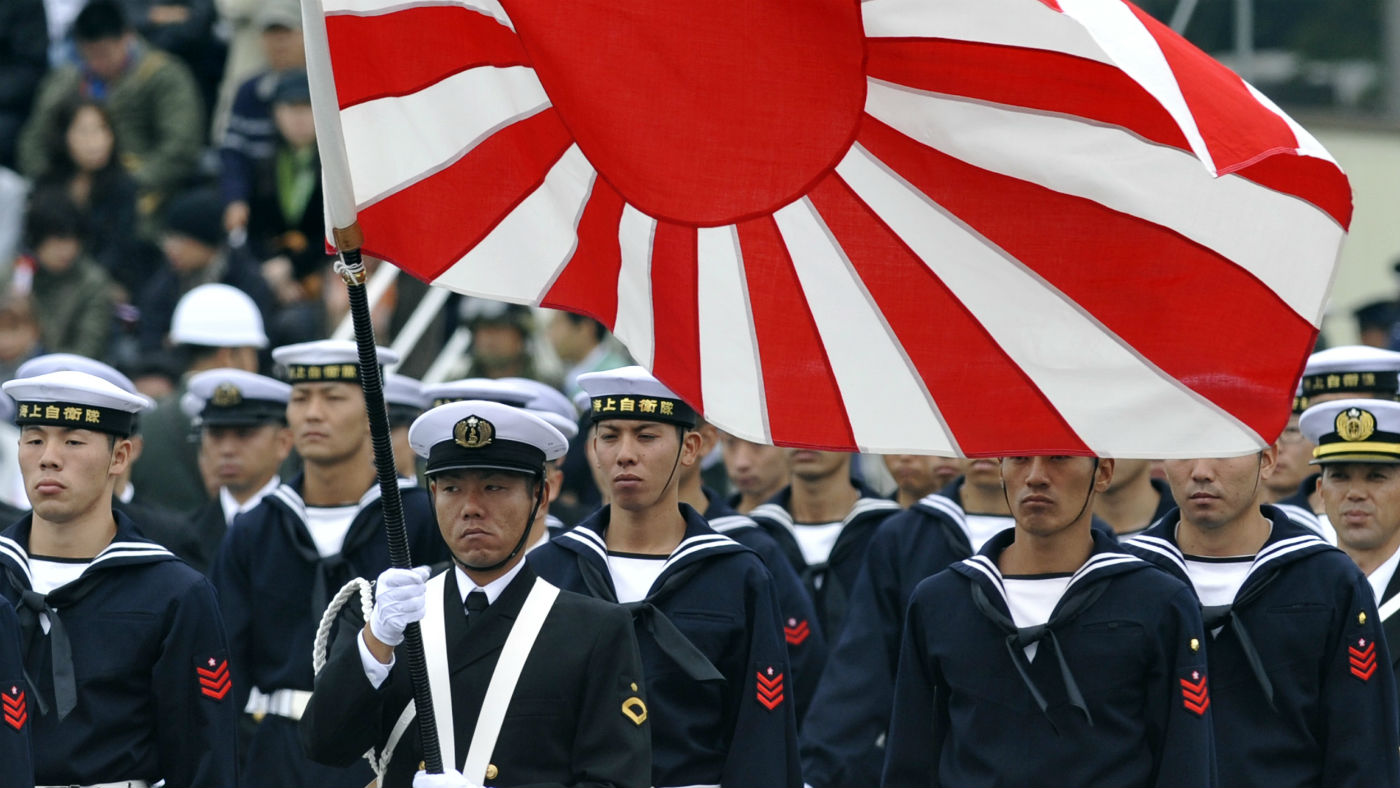Why is Japan rearming?
Country to acquire first aircraft carrier since the Second World War as fear of Chinese threat grows

A free daily email with the biggest news stories of the day – and the best features from TheWeek.com
You are now subscribed
Your newsletter sign-up was successful
Japan is to acquire its first aircraft carrier since the Second World War, as it looks to ramp up its rearmament programme to counter the growing maritime threat posed by China in the Pacific Ocean.
Earlier this week the Nikkei business paper reported that Japan was poised to buy 100 F-35 stealth jets from the US at a cost of more than $8.8bn, to add to the 45 it has already purchased from the US.
Now Tokyo plans to upgrade two existing helicopter-carrier vessels so they can transport and launch fighter jets, “a move critics say violates its postwar constitutional commitment to a purely defensive role for the military”, reports The Guardian.
The Week
Escape your echo chamber. Get the facts behind the news, plus analysis from multiple perspectives.

Sign up for The Week's Free Newsletters
From our morning news briefing to a weekly Good News Newsletter, get the best of The Week delivered directly to your inbox.
From our morning news briefing to a weekly Good News Newsletter, get the best of The Week delivered directly to your inbox.
Previous Japanese governments have specifically ruled out acquiring aircraft carriers, adhering to the postwar consensus that the vessels’ capabilities could be interpreted as offensive and therefore in violation of its “pacifist” constitution.
“The notion that the best defense is a good offense is gaining traction among Japanese decision-makers,” writes Phillip Orchard in Geopolitical Futures, driven by China’s increasingly expansionist maritime policy in the region and the continuing threat posed by North Korea.
While last year’s North Korean missile test that penetrated Japanese airspace drew international condemnation, China is seen as the more serious threat. Tensions are currently focused on a tiny series of uninhabited islands in the South China Sea that are administered by Japan but claimed by China, and which some analysts warn could be the focal point for an all-out war in Asia.
Crucially, the mood among the Japanese public also appears to be shifting.
A free daily email with the biggest news stories of the day – and the best features from TheWeek.com
“Pacifism has been a sacred tenet of Japan’s national identity since the end of World War II” says Motoko Rich in the New York Times, “but there are signs that the public’s devotion to pacifism and its attitude toward the Japanese military, known as the Self-Defense Forces, have begun to change in part at the urging of Prime Minister Shinzo Abe.”
in 2015, Abe pushed through security laws that permit Japan’s troops to participate in overseas combat missions, and the Japanese government has also proposed military spending increases for seven years running.
“Japan has never been closer to revising its postwar constitution than it is now”, says John Wright in The Diplomat.
Though there is general consensus Japan’s pacifist constitution allows offensive action under certain limited circumstances, Bloomberg’s editorial board has written that “the prime minister needs to be honest about his long-running push to revise Japan’s constitution, including its clause renouncing war”.
“He says the changes he’s proposing would do no more than legitimise Japan’s existing Self-Defense Forces. But his past statements and links to hard-right groups have raised legitimate doubts about his intentions”, the news agency reports.